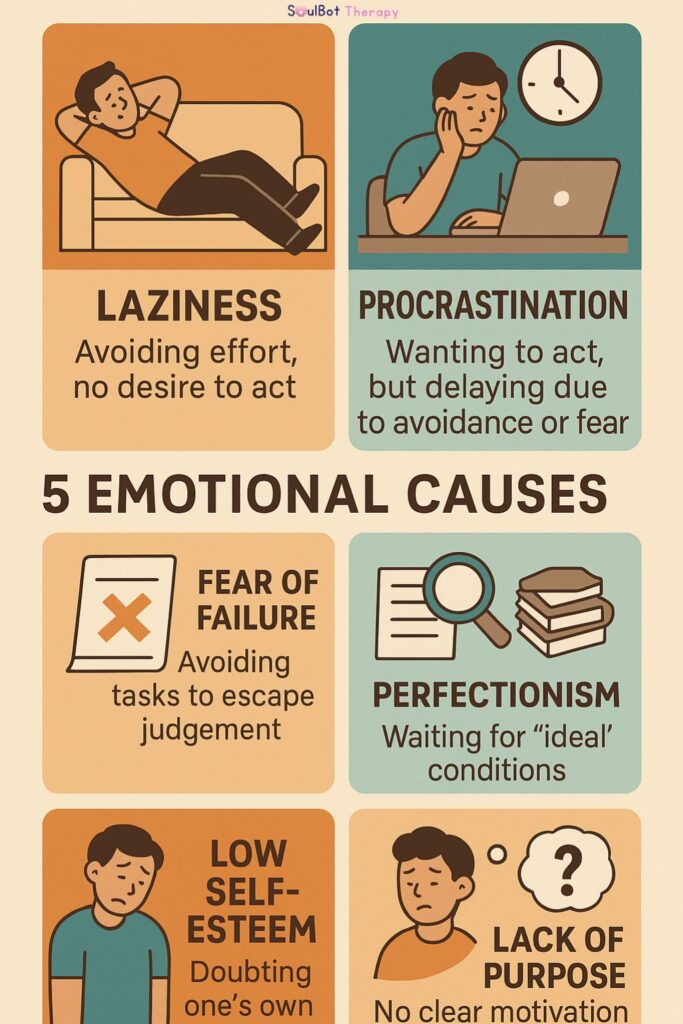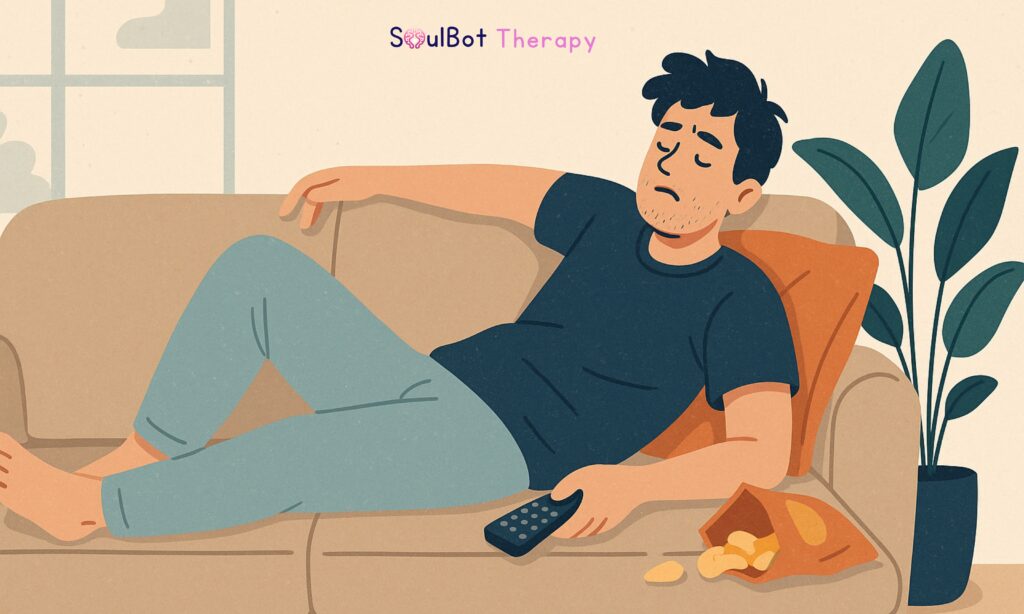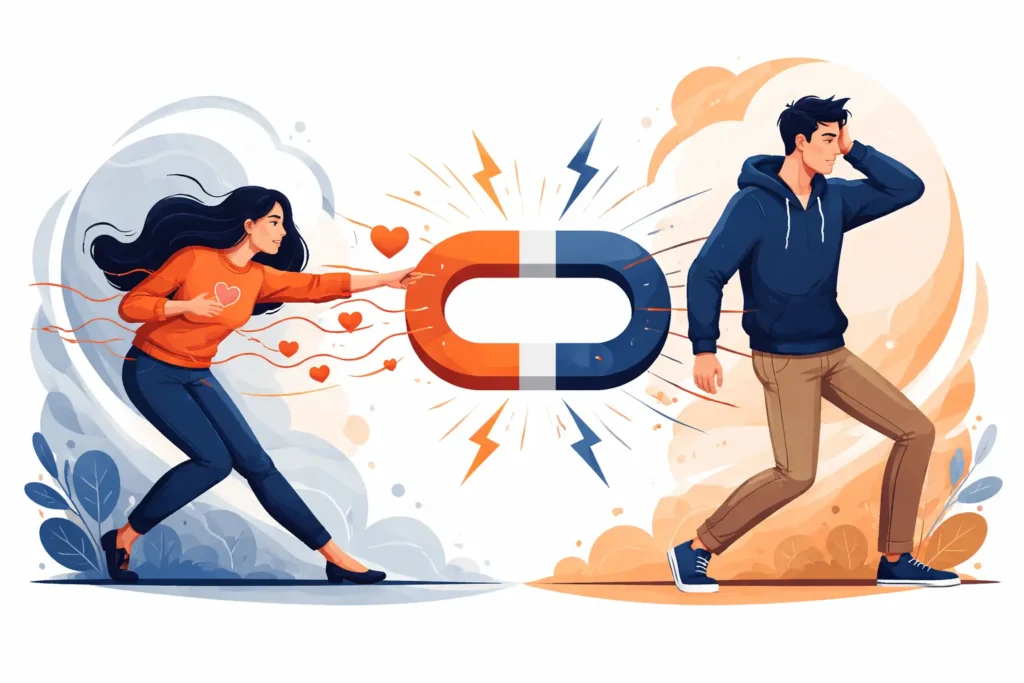“Lazy.” It’s a word we throw around too quickly at ourselves and others whenever motivation slips. But the truth is, the psychology of laziness has little to do with being weak or careless. Science shows it’s often about energy regulation, mental health, and emotional load, not pure lack of discipline.
Let’s unpack why people feel lazy, what’s happening in the brain, and how to overcome it with psychology-backed strategies.
✨Discover your true personality take the SoulBot MBTI Test now!What Does Psychology Say About Laziness?
From a psychological perspective, laziness is not simply refusing to work. The mind and body often signal exhaustion, lack of alignment with goals, or even fear of failure.
- Neuroscience research shows the brain prefers efficiency, so motivation shuts down when a task feels too hard or unrewarding.
- Psychologists argue that what we label “laziness” often overlaps with procrastination, low energy, or emotional burnout.
Why Do People Feel Lazy Even With Goals?
If you’ve asked yourself, “Why do I feel lazy even when I want to succeed?” you’re not alone.
Common causes include:
- Decision fatigue: Too many choices drain motivation.
- Fear of failure: Avoidance masquerades as laziness.
- Overwhelm: Tasks feel bigger than your current capacity.
- Mental health and laziness connection: Depression and anxiety can cause fatigue and lack of motivation, often misread as laziness.
💡 SoulFact (APA): The American Psychological Association reports chronic stress and mental fatigue directly reduce motivation, making people more likely to appear “lazy.”
Procrastination vs Laziness: What’s the Difference?
It’s easy to confuse the two, but they’re not identical.
- Procrastination → You delay tasks but often feel guilty and plan to do them later.
- Laziness → You avoid effort altogether, usually because the task feels unimportant or draining.
In reality, many people who think they’re lazy procrastinate due to anxiety, perfectionism, or lack of clarity.
What Are the Emotional Causes of Laziness?
The emotional causes of laziness run deeper than a lack of willpower:
- Low self-esteem: Believing your effort won’t matter.
- Fear of judgment: Avoiding effort to dodge criticism.
- Burnout: Overworking leads to emotional shutdown.
- Lack of purpose: Without meaning, even simple tasks feel heavy.
🔗 SoulInsight: Verywell Mind notes that avoidance behaviors (like laziness) often stem from deeper emotional struggles, not simple disinterest.

👉Uncover the personality patterns behind your habits, take the MBTI SoulBot Test and see what drives your motivation!How to Overcome Laziness With Psychology-Based Tools?
Breaking free from laziness isn’t about forcing productivity but addressing the root causes.
1. Break Tasks Into Small Steps
Your brain rewards progress. Small wins boost dopamine and motivation.
2. Use Energy Matching
Work on challenging tasks when your energy is naturally high (morning for most people).
3. Practice Self-Compassion
Instead of shaming yourself as “lazy,” reframe it as feedback that you need rest or clarity.
4. Address Mental Health Factors
If fatigue or avoidance continues, it may be linked to anxiety or depression, not laziness. Therapy or guided tools can help.
5. Build Purpose and Alignment
Tasks tied to personal meaning feel lighter and more likely.
💡 SoulFact: Research shows that mindfulness-based practices greatly improve focus and reduce avoidance, making them powerful tools for overcoming laziness psychology.
Conclusion: Rethinking Laziness
The psychology of laziness shows us that what looks like weakness is often a sign of burnout, fear, or emotional imbalance. Instead of blaming yourself, look at the bigger picture: your mental health, goals, and daily energy patterns. When you shift from self-criticism to curiosity, laziness becomes less of a flaw and more of a guide toward balance.
👉 Need daily support? Chat with SoulBot, your AI mental health coach, for personalized guidance anytime.







